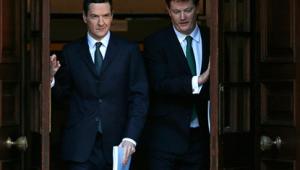Osborne hailed his Budget as a deal for the next generation, and devoted a key section to children, particularly their health and education.
The sugar tax was a flagship announcement, as was the well-trailed acceleration of the academy programme.
While acknowledging that drinks manufacturers and retailers have begun to address the quantities of sugar added to drinks aimed at children, he said the government had to act when it was clear that sugary drinks drive childhood obesity, which in turn fuels disease and long-term costs for the NHS.
“I am not prepared to look back at my time here in this Parliament, doing this job and say to my children’s generation: ‘I’m sorry. We knew there was a problem with sugary drinks. We knew it caused disease. But we ducked the difficult decisions and we did nothing,’” the chancellor told MPs.
The levy will be introduced in two years’ time, to give manufacturers the chance to alter their products. There will be two bands: one based on 5 grams of sugar per 100ml and another for 8 grams per 100ml or above. Fruit juices and milk-based drinks will be exempt from the levy.
Osborne said the sugar tax would prompt manufacturers to take some “perfectly reasonable steps” to protect children’s health and promote low-sugar or no-sugar options.
“Of course, some may choose to pass the price onto consumers and that will be their decision, and this would have an impact on consumption too,” he said.
“We understand that tax affects behaviour. So let’s tax the things we want to reduce, not the things we want to encourage.”
Revenue generated by the levy will be spent doubling the amount of money spent on schools sports, the chancellor added.
On education, he announced that every school would either be an academy or on the way to becoming an academy by the end of the Parliament in 2020.
This quickly drew the ire of the National Union of Teachers, which predicted “disastrous” results for the policy.
NUT deputy general secretary Kevin Courtney said: “The proposals to force all schools to become academies will result in the dismantling of state education and will end democratic accountability in our schools.
“This is being done despite clear evidence that academies do not perform better than other schools and, in the case of many large chains, badly let down their most disadvantaged children.”
Osborne also announced a particular focus on education standards in Northern schools, saying the turnaround seen in London’s schools could be extended elsewhere. Sir Nick Weller, a Bradford-based head teacher, has been recruited to draw up a plan for education improvement across the Northern Powerhouse.
Other education announcements concerned a re-statement of the government’s commitment to a fair National Funding Formula for schools, with £500m announced to speed up its introduction, and consideration of extending maths education up to age 18.











